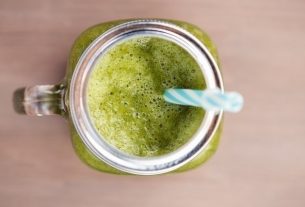To choose the best type of milk, it is important to consider individual preferences, as people who maintain a diet with foods of animal origin usually opt for animal milk, such as cow, goat, sheep or buffalo.
However, people who maintain a vegetarian eating style typically prioritize plant-based milks or drinks, such as soy, almond, rice or oat milk.
Furthermore, plant-based milks can also be great options for people with lactose intolerance, a type of carbohydrate present in milk, or allergies to casein, the milk protein of animal origin. See what it is and how to know if you have lactose intolerance.

Animal milk
Milk of animal origin generally contains higher levels of proteins, carbohydrates, fats, calcium and potassium. The main types of milk of animal origin are:
1. Cow’s milk
Cow’s milk is a food naturally rich in proteins, carbohydrates and fats, and can be consumed by people of any age from 1 year old. As it is a versatile food, cow’s milk can be consumed pure or in preparations, such as vitamins, with cereals, and in the production of yogurts and cheeses.
Depending on the amount of fats, proteins and carbohydrates, cow’s milk can be found in different versions, such as:
- Skimmed milk: skimmed milk goes through a process to remove all the fat and each 100 ml of this milk has only 34 calories, 3.4 g of protein and 0.4 g of fat, making it a great option for those who want to lose weight or gain muscle mass ;
- Semi-skimmed milk: This type of milk has a reduction of 50% or more in its total fat. Each 100ml of this type has 47 calories, 3.3 g of protein and only 1.6 g of fat, and can also be recommended for those who want to lose weight or on diets to control their intake of fat and carbohydrates;
- Leite integral: This type of milk does not go through any fat removal process and each 100 ml of whole milk contains 62 calories, 3g of protein and 3.5 g of fat. As it contains a higher calorie content, this type of milk is a good option for people who want to gain weight.
In addition, there are also some types of cow’s milk with a low or lactose-free content, which are interesting for those who are intolerant to this nutrient. Know the amount of lactose in food.
2. Goat’s milk
Although not very popular, goat’s milk is an alternative to whole cow’s milk, as it contains a high level of fat, proteins, minerals such as calcium, potassium and phosphorus, and vitamin A. Each 100 ml of whole goat’s milk contains approximately 69 calories, 3.6 g of protein, 4.5 g of carbohydrates and 4 g of fat.
Goat’s milk has a stronger flavor and is better digested than cow’s milk, preventing gas and poor digestion. This milk can be consumed pure or in recipes, such as smoothies, porridge, and can also be used to produce yogurts and cheeses.
3. Buffalo milk
Buffalo milk is a little more difficult to find for purchase and, therefore, is usually priced a little higher than other types. This type of milk has a high calorie content, making it an interesting option for those who want to gain weight and gain muscle mass.
Each 100 ml of buffalo milk has 97 calories, 3.7g of protein, 5.2g of carbohydrates and 6.9g of fat. Buffalo milk has a sweeter flavor and, therefore, can be consumed pure, blended with fruit or even used to make cheese, which is the best known form.
4. Sheep’s milk
Sheep’s milk has a higher calorie, protein and fat content than other types. Each 100 ml of sheep’s milk contains 108 calories, 5.6 g of protein, 5.4 g of carbohydrates and 7 g of fat. Furthermore, sheep’s milk contains the highest calcium content among the 4 types listed.
Like goat’s milk, sheep’s milk also has a stronger flavor and is normally used for preparations such as yogurt, cheese or puddings.
Advantages and disadvantages of animal milk
Animal milk is a drink with good amounts of proteins, carbohydrates and fats, nutrients that provide energy for the body and help with muscle mass gain. Furthermore, these types of milk contain excellent amounts of minerals, such as calcium, phosphorus and potassium, which are important for preserving the health of bones and teeth.
The main disadvantage of these types of milk is the presence of lactose, which can cause abdominal discomfort, cramps and gas in people with intolerance to the nutrient. Another disadvantage is that animal milk generally has a lot of fat, and therefore may not be a good option for those who want to lose weight.
How to choose the best type of animal milk
When choosing milk of animal origin, it is important to prioritize types that are pasteurized, ultrapasteurized or sterilized, as these heat treatments at high temperatures help eliminate bacteria that can spoil the milk and cause food poisoning.
The choice of milk can also be made according to individual goals. A person who wants to lose weight should opt for the skimmed version, which contains lower fat and calories. For those who want to gain weight, whole milk versions are great options, as they have a higher carbohydrate and fat content, increasing the calories in the diet.
However, people who want to gain muscle mass should prioritize milk that contains a higher protein content, such as sheep’s milk and buffalo milk.
Plant-based milks
Plant-based milks are great options for people who follow a vegetarian eating style. Furthermore, as they do not contain lactose or casein, these milks can also be recommended for those who have intolerance or allergies to milk of animal origin. Thus, the main plant-based milks are:
1. Soy milk
Soy milk is a vegetable drink made with soybeans and water, containing good amounts of protein, fiber and minerals, such as potassium and phosphorus. Furthermore, soy milk has a low fat content, making it a great option for weight loss diets.
Each 100 ml of soy milk contains just 37 calories, 3.7g of protein, 0.4g of carbohydrates and 2.2g of fat.
This type of plant-based milk can be found in health food stores and supermarkets, where it is usually enriched with vitamin A, vitamin D and calcium. However, soy milk can also be prepared at home, consumed pure or used in preparations such as cheese (tofu), yogurt or smoothies. See how to prepare soy milk.
2. Oat milk
Oat milk is one of the vegetable drinks with the highest protein content, in addition to containing few calories and good amounts of fiber, helping to maintain good bowel function.
Each 100 ml of oat milk contains approximately 56 calories, 1.4 g of protein, 0.8 g of fat and 3.3 g of carbohydrates.
Oat milk is easily found in supermarkets or health food stores and can be enriched with calcium and vitamins, such as vitamin A and vitamin D. Another option for consuming oat milk is to make the drink at home, which can be used in simple form or added to recipes such as smoothies, porridge or cake. Find out how to make oat milk at home.
3. Almond milk
Almond milk is the vegetable drink with the lowest amount of calories and carbohydrates among vegetable milks, making it an interesting option for weight loss diets. Each 100 ml of almond milk contains just 15 calories, 0.5g of protein, 0.3g of carbohydrates and 1.2g of fat.
Furthermore, each 100 ml of almond milk contains 184 mg of calcium, an amount greater than that found in cow’s milk, which is why this is a great food to help strengthen bones and prevent osteoporosis. Discover all the benefits of almond milk.
Almond milk can be prepared at home, but it is also sold in health food stores and supermarkets, in simpler versions, enriched with vitamins and minerals, or together with other vegetable milks, such as rice or coconut.
4. Rice milk
Rice milk contains the highest carbohydrate content among plant-based milks and, therefore, can be an interesting choice to provide energy during physical activity.
Each 100 ml of rice milk has approximately 47 calories, 0.3 g of protein, 1 g of fat and 9.2 g of carbohydrates.
Rice milk can be easily found in supermarkets and health food stores. However, a simple and cheap way to consume the drink is to prepare it at home. See how to prepare rice milk.
How to choose the best type of plant-based milk
To choose the best type of plant-based milk, it is important to prefer versions that are enriched with vitamins, such as vitamin D and vitamin A, and minerals, such as calcium, to prevent a deficiency of these nutrients in the body.
Furthermore, the choice of plant-based milk can be made according to each person’s nutritional objective. A person who wants to gain weight can opt for versions with more calories, such as rice milk or oat milk. Those who want to lose weight can opt for a milk with a lower amount of calories, such as almond milk.
Advantages and disadvantages of plant-based milk
The main advantage of plant-based milks is that they typically have a lower fat content, making them great options for weight loss diets. Furthermore, some types of plant-based milk, such as almond milk, contain greater amounts of calcium and potassium than animal milk, making them good alternatives for vegetarian diets.
Another advantage of including plant-based milk in your diet is that it does not contain lactose and casein, making it a great option for people with intolerance or allergies to animal milk.
The main disadvantage of plant-based milk is that it generally has a low vitamin D and protein content (except soy milk) and, therefore, it may be recommended to consume these drinks along with other foods to complement the diet. Furthermore, plant-based milks typically have a slightly higher price when compared to milks of animal origin.

Sign up for our newsletter and stay up to date with exclusive news
that can transform your routine!
Warning: Undefined array key "title" in /home/storelat/public_html/wp-content/plugins/link-whisper-premium/templates/frontend/related-posts.php on line 12
Warning: Undefined array key "title_tag" in /home/storelat/public_html/wp-content/plugins/link-whisper-premium/templates/frontend/related-posts.php on line 13



